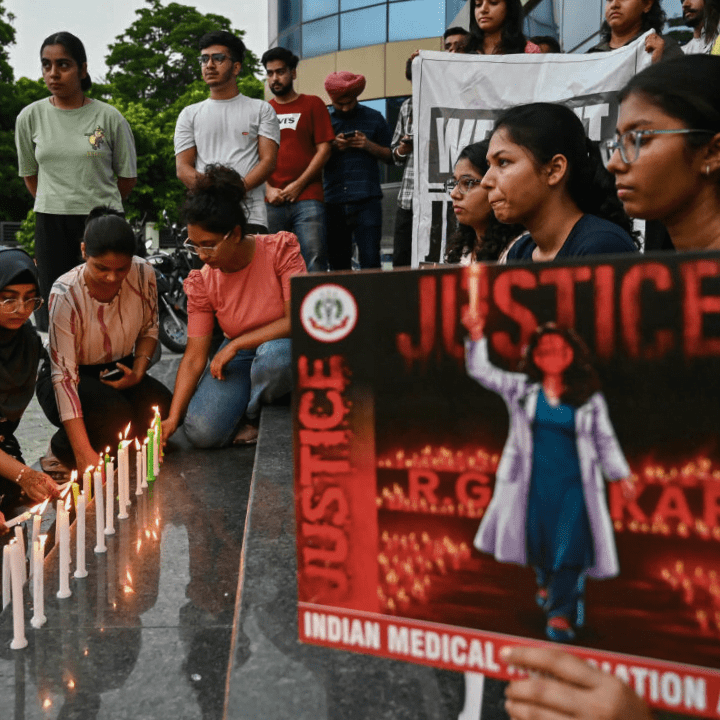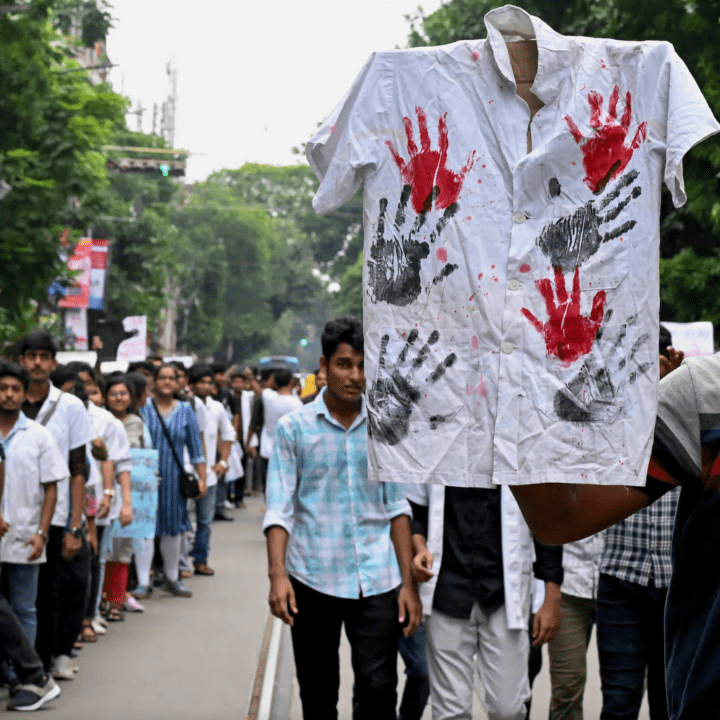Trigger Warning: This article contains mentions of rape, sexual assault and murder.
India is once again facing the grim reality of its ongoing struggle with gender-based violence, as the country erupts in protest following the rape and murder of a 31-year-old trainee doctor in Kolkata. This horrifying crime has ignited widespread outrage, with thousands taking to the streets in major cities like Delhi, Mumbai, and Hyderabad. The protests, dubbed “Reclaim the Night,” are not just about seeking justice for the victim but are a fierce demand for systemic change in a society where women continue to live in fear of violence.

The details of the crime are deeply disturbing. The young doctor, exhausted from a 36-hour shift, sought rest in a seminar room at R G Kar Medical College, only to be brutally assaulted and murdered. The lack of safe spaces for women to rest has been highlighted as a critical issue, pointing to broader systemic failures in institutions that are supposed to protect and nurture their employees. The autopsy revealed high levels of ketamine in her system, a drug often misused for its anesthetic properties, which tragically ended her life. The case has now been handed over to India’s Central Bureau of Investigation after accusations of negligence and delays by local authorities, adding another layer of outrage to an already volatile situation.

This incident has reopened old wounds for many in India, recalling the 2012 Delhi gang rape that led to significant legal reforms. However, despite these changes, violent crimes against women continue to rise, with over 31,000 rape cases reported in 2021 alone. Activists argue that the root causes of this violence – deep-seated misogyny, cultural impunity, and systemic inefficiencies – remain unaddressed. The current protests are a stark reminder that while legal frameworks may have evolved, the lived reality for women in India still demands urgent, transformative change. The streets of India are filled with voices demanding not just justice for the slain doctor, but a safer, more equitable future for all women.
Editor’s note: The response to this tragedy underscores the ongoing battle for women’s safety in India. As public outcry grows, the need for actionable change becomes ever more pressing, not just for justice in this case, but for the fundamental right of women to live without fear in their own country.

Catherine Pun
A Hong Kong native with Filipino-Chinese roots, Catherine infuses every part of her life with zest, whether she’s belting out karaoke tunes or exploring off-the-beaten-path destinations. Her downtime often includes unwinding with Netflix and indulging in a 10-step skincare routine. As the Editorial Director of Friday Club., Catherine brings her wealth of experience from major publishing houses, where she refined her craft and even authored a book. Her sharp editorial insight makes her a dynamic force, always on the lookout for the next compelling narrative.



